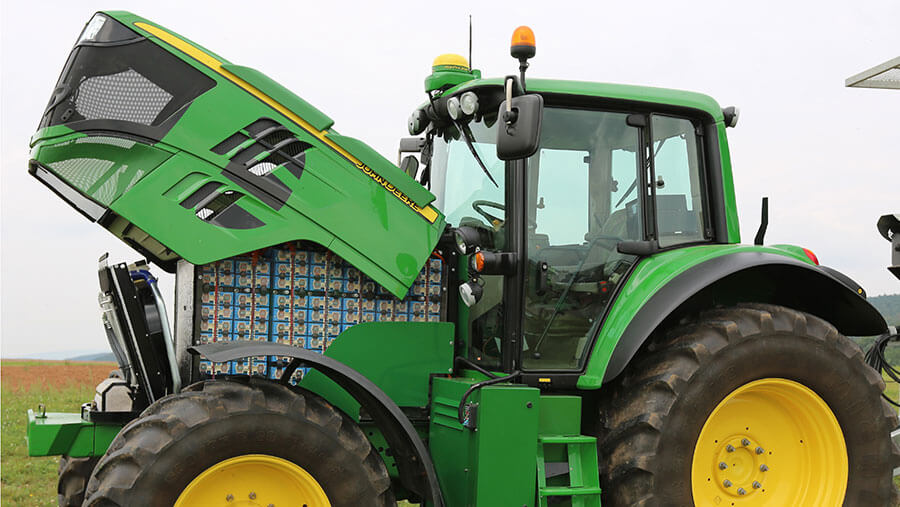Electric tractors are gaining traction as a promising solution for sustainable agriculture, offering an alternative to traditional diesel-powered machines. While the market is still new, researchers, entrepreneurs, and farmers are exploring the possibilities and working to overcome the challenges associated with their adoption.
Environmental and Economic Benefits Traditional diesel tractors pose environmental and economic challenges. They consume a significant amount of diesel fuel, contributing to air pollution through particulate matter and nitrogen oxide emissions. Electric tractors offer a cleaner alternative with zero tailpipe emissions, reduced noise, and fewer moving parts, which translates to lower maintenance costs. Studies suggest that electric tractors can lower operating costs by as much as 70-80% compared to diesel tractors. ICRA estimates a 39% lower total cost of ownership over six years, offering substantial long-term savings and faster payback. Farmers with solar panels can avoid the cost of diesel altogether. Beyond cost savings, electric tractors improve farmer health and livestock welfare due to quieter operation.
Overcoming Challenges to Adoption Despite the numerous advantages, the adoption of electric tractors faces several hurdles. One significant barrier is the higher upfront cost compared to diesel tractors. Concerns exist regarding battery life, range, and charging infrastructure, especially in remote areas. Farmers have also expressed concerns about the battery's placement potentially reducing ground clearance and overall suitability for all types of farm work. In India, for example, not a single e-tractor was registered in FY 2024–25, with only 16 registered nationwide out of over 800,000 total tractors, highlighting the slow adoption rate.
Technological Advancements and Government Support Innovations in battery technology, including lithium-ion and swappable batteries, are improving the performance and reliability of electric tractors. Government support is also crucial. Schemes like the FAME India initiative and state-level subsidies aim to make electric tractors more affordable. However, some models exceed subsidy caps, leading to underutilization. Policies and financial innovations, such as targeted incentives, lower GST rates, and concessional financing, are needed to encourage the shift to electric machinery. Green credits and carbon markets can further incentivize farmers by turning sustainability into an income stream.
The Role of AI and Shared Economy Models Integrating AI with electric tractors can further revolutionize agriculture. Modern e-tractors equipped with sensors, IoT modules, and cloud connectivity can collect data on soil health, crop patterns, and tractor performance. AI-driven analytics can provide farmers with insights for better decision-making, such as predicting potential breakdowns, optimizing energy use, and recommending optimal sowing schedules. Shared economy models, such as Tractor-as-a-Service (TaaS) platforms, can address the affordability issue by allowing farmers to rent e-tractors on an hourly or task basis.
The Future of Electric Tractors Electric tractors are not just about replacing diesel engines; they represent a reimagining of farming practices. As technology advances and costs decrease, electric tractors are poised to play a significant role in creating a more sustainable and efficient agricultural sector. They are particularly well-suited for small farmers who prioritize sustainability and want to market their products accordingly. Some entrepreneurs envision electric tractors as a step towards automation, leading to fewer workers, increased efficiency, and reduced costs. By addressing the current challenges and embracing innovation, electric tractors can pave the way for a greener and more prosperous future for agriculture.















